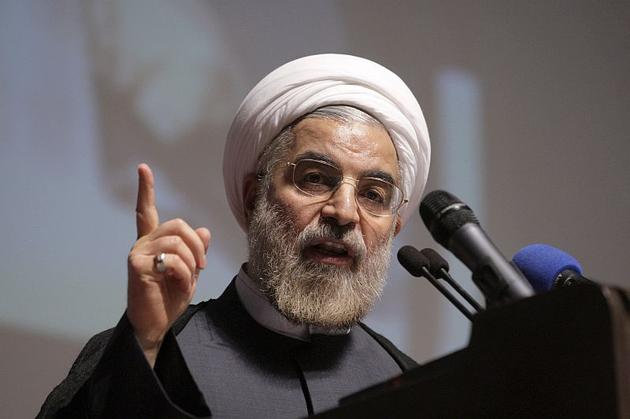Iran, world powers clinch historic nuclear power deal

World powers and Iran have reached a landmark deal to curb the Islamic Republic’s nuclear programme in exchange for sanctions relief after an 18-day marathon negotiations in Vienna. The accord was announced yesterday by Iranian Foreign Minister Mohammad Javad Zarif and the European Union’s policy chief Federica Mogherini in a joint statement in the Austrian capital.
Iranian Foreign Minister Mohammad Javad Zarif called the deal a “win-win” solution to end “an unnecessary crisis and open new horizons for dealing with serious problems that affect our international community.”
“I believe this is a historic moment. We’re reaching an agreement that isn’t perfect for everybody but it’s what we could accomplish and it’s an important achievement for all of us,” said Zarif. “Today could’ve been the end of hope on this issue, but now we’re starting a new chapter of hope.”
Mogherini said the decision demonstrated that “diplomacy, coordination, cooperation can overcome decades of tensions and confrontations”. “It’s a decision that opened a way to a new chapter in international relations,” she said.
James Bays, reporting from Vienna, said that the presidents of the United States and Iran were expected to speak about the deal.
“For them it’s a historic deal that would serve some kind of a re-set after decades of mistrust,” he said.
Meanwhile, Benjamin Netanyahu, the prime minister of Israel, who sees major threat in the deal called the decision “a historic mistake for the world”. “Iran will get hundreds of billions of dollars with which it’ll be able to fuel its terror machine,” he said, referring to the expected lifting of crippling Western sanctions on its oil and banking sectors.
The accord seeks to end nearly 12 years of nuclear stand off between Iran and the western powers led by the US. The accord will keep Iran from producing enough material for a nuclear weapon for at least 10 years and impose new provisions for inspections of Iranian facilities, including military sites.
Iran was resisting the probe in the country’s alleged work on nuclear weapons and demanding that a United Nations arms embargo be lifted.
It also demanded that any UN Security Council resolution approving the broader deal no longer describe Iran’s nuclear activities as illegal.
Major powers accused the Islamic Republic of seeking to build nuclear weapons, an aim it denied, under the guise of a civilian programme.
Iran will slash by about two-thirds the number of centrifuges from about 19,000 to 6,104 under the deal announced yesterday. A total of 1,044 of these centrifuges will be used for other purposes than uranium enrichment.
Meanwhile, President Hassan Rouhani pledged yesterday that Iran “will never seek a nuclear weapon, with or without the implementation” of the deal agreed with world powers in Vienna.
Rouhani said live on state television that such weapons were “against our religion” and contradicted a decree from supreme leader Ayatollah Ali Khamenei barring the pursuit of an atomic bomb.
He reiterated the point later in his speech, promising regional countries suspicious of Iran’s nuclear programme that it has never and will not “seek to pressure” its neighbours.








Comments